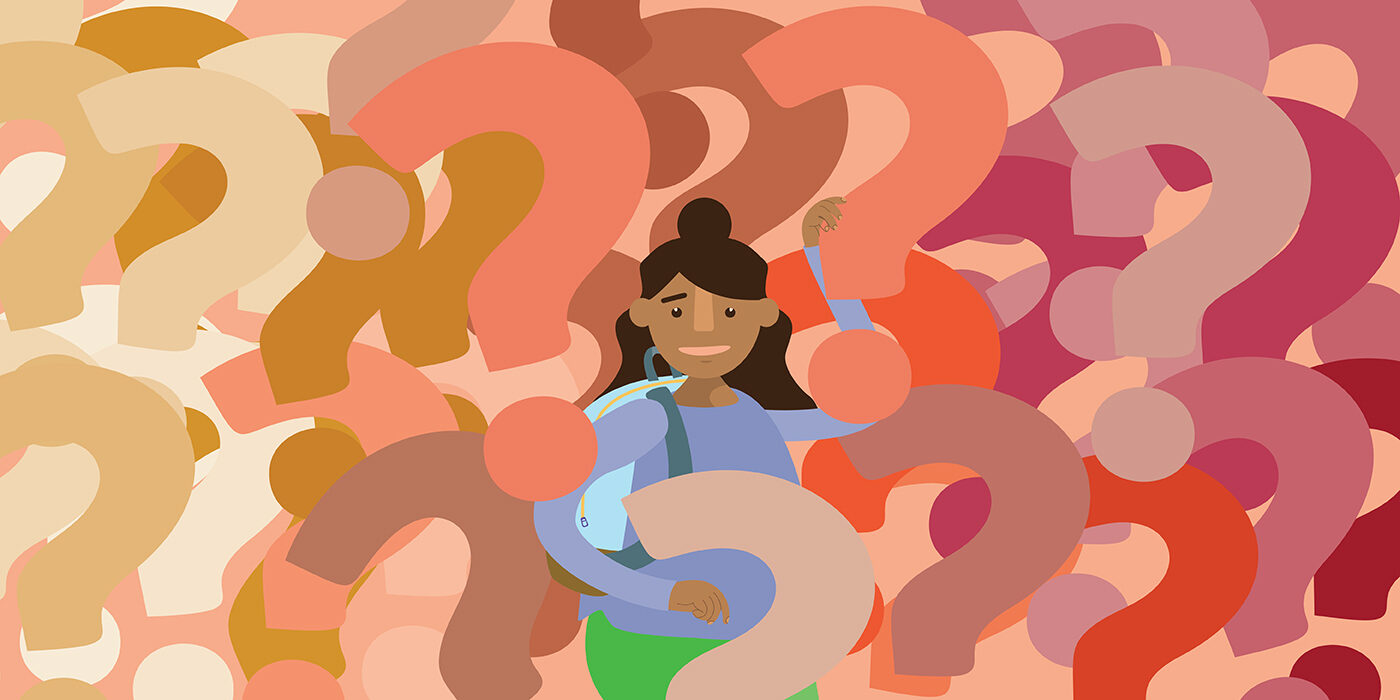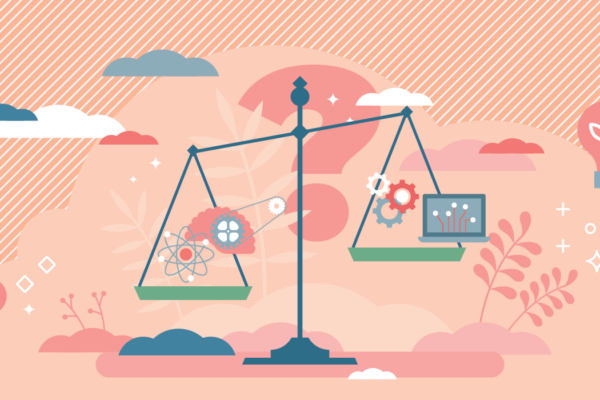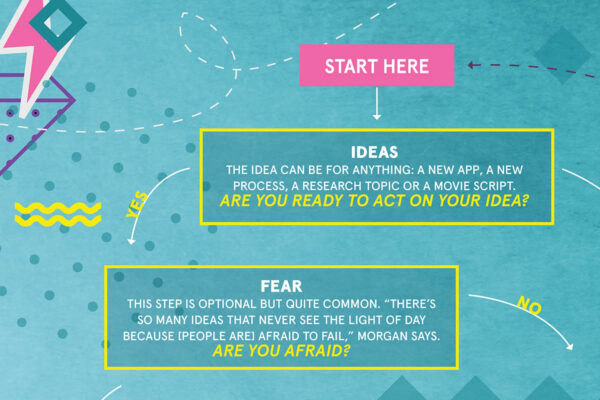Students in the course “The Good Life Between Religion and Politics” ask big ethical questions about the pandemic and prison abolition, but they also learn that picking their classes for the semester is an ethical question, too.
“I think students are really hungry for this kind of inquiry,” says Fannie Bialek, assistant professor of religion and politics in Arts & Sciences and in the John C. Danforth Center on Religion and Politics at Washington University. “Even the common questions about classes are not to be taken lightly. They are really complex ethical questions about the things you care about and what you think is worth doing. These are the ethical inquiries that determine the way that we spend our lives and how we feel about how we live our lives.”
Bialek’s course considers the way religious and political thought has shaped the classical ethical question of how we should live, and the way that ethics has often served to connect religion and politics in thought and practice. Bialek wants students to understand that asking these types of questions is important — and that we don’t ask them in a vacuum.
“I really want students to see that the questions of ethics are questions we don’t ask alone,” she says. “We ask them as people embedded in communities and those communities are sometimes called religious, sometimes called political. We might even just think of them as groups of friends.”
Bialek created the course after observing an explosion of classes nationwide that examine happiness through a social science lens, such as “Positive Psychology: The Science of Happiness” at WashU.
“I think that a lot of people in my field have been watching those classes gain popularity and have wondered, ‘But why aren’t you in our classes?’ We do the much more traditional, much older study of those kinds of questions through the practices and traditions of religion and politics, and the way we negotiate them together,” she says.
Bialek taught the course for the second time in fall 2021 and updated the readings to reflect recent issues, such as the death of George Floyd and COVID-19.
“Students really had a sense of urgency related to the way the pandemic disrupted their lives and related to racial reckoning in America,” she says, noting that the next time she offers the class, discussion topics will be updated to whatever the challenges of the day might be.
Students also experiment with the concept of ethical imagination, in which they rethink traditional ethical ideas. “This year, we worked on that in the context of prison abolition and the way that abolition is a project of thinking otherwise,” she says of the movement to eliminate prisons and the prison system.
Bialek wants students to understand that an ethical life should include things they delight in, not just dreary obligations.
“If we don’t care about the good we encounter, then this whole enterprise is going to seem kind of fruitless,” she says. For example, she says, some environmental thinkers stress the importance of delighting in nature. “Part of what Thoreau is doing in Walden is to show that a very important part of the way we live our life is to delight in the goods around us. If you miss that, you’re going to have a very distorted picture of what ethics is, because you’re going to be looking for all of these reasons why you shouldn’t do something instead of looking to delight in the goods that are actually there.”
Bialek says her class doesn’t provide answers to life’s big questions but instead helps students learn how to ask the right questions to find their own answers.
“They come to class eager and with questions,” she says. “They have things that they care about, and they want to know how to ask about those things. And that is really exciting to me.”



